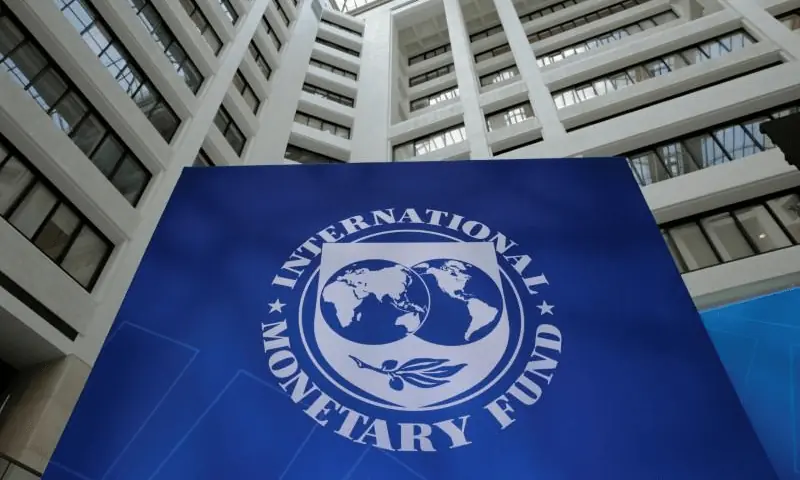

• Lender’s Governance and Corruption Diagnostic Assessment proposes 15-point reform plan
• Calls for tighter limits on govt’s financial powers
• Demands first public annual report of SIFC, concessions granted
• Points to opaque tax system, intrusive regulations, weak independent regulators
ISLAMABAD: The International Monetary Fund (IMF), in its long-awaited Governance and Corruption Diagnostic Assessment (GCDA), has highlighted persistent corruption challenges in Pakistan driven by systemic weaknesses across state institutions and demanded immediate initiation of a 15-point reform agenda to improve transparency, fairness and integrity.
The report, publication of which is a precondition for the IMF executive board’s approval of a $1.2 billion disbursement next month, estimates that Pakistan could boost economic growth by about 5 to 6.5 per cent over five years if it implements a package of governance reforms beginning within the next three to six months.
The GCDA seeks an end to special treatment for a few influential public sector entities in direct government contracts and transparency in the affairs and decision-making of the Special Investment Facilitation Council (SIFC). It also recommends tighter limits on the government’s financial powers without greater parliamentary oversight and streamlining of anti-corruption agencies. The government had been delaying the publication of the report since August.
“A unifying theme is the emphasis on increasing transparency and accountability in policy formulation, implementation and monitoring. This involves improving access to information and strengthening the capacity of state and non-state stakeholders to participate effectively in governance and economic decision-making,” the report said, calling for advancing rule-based governance.
It said Pakistan would obtain substantial economic benefits from improving governance, accountability and integrity along the lines recommended in the GCDA.
“Pakistan could generate between a 5pc to 6.5pc increase in GDP by implementing a package of governance reforms over the course of five years” beginning in three to six months, it said. The key areas include improvements in governance and anti-corruption, business regulation and regulation of foreign trade.
It said both the IMF and the government agreed that confronting and reducing corruption vulnerabilities was necessary for sustainable reform and that anti-corruption efforts are most successful when they combine initiatives to strengthen governance with initiatives to directly confront corruption and enhance integrity.
Indicators showed weak control of corruption over time with negative consequences for public spending effectiveness, revenue collection, and trust in the legal system.
The GCDA revealed systemic governance weaknesses across state functions and noted that the country was exposed to corruption risk generated by weaknesses in budgeting and reporting of fiscal information, and management of public financial and non-financial resources, particularly in capital spending, public procurement and the management and oversight of state-owned enterprises (SOEs).
It also identified an overly complex and opaque tax system administered by tax and customs authorities operating with insufficient capacity, management and oversight.
On top of this was a judicial sector that is organisationally complex, is unable to reliably enforce contracts or protect property rights due to problems with efficiency, antiquated laws, and the integrity of judges and judicial personnel.
Procurement, SIFC
The IMF demanded that all public sector procurements should eliminate preferences for SOEs, including special provisions for direct contracting and mandatory use of e-governance procurement for all state transactions within 12 months.
It called for immediately producing and making public the first annual report of the SIFC, including information on all investments it facilitated, including concessions provided (tax, policy, regulatory and legislative), along with detailed rationale and the outcomes.
It said that given its broad and disparate organisational functions and authority, it was essential for the SIFC to develop explicit protocols for undertaking its activities and enhanced transparency arrangements to enable effective oversight and accountability.
It also questioned the SIFC’s creation in the first place and the immunity its staff enjoyed in decision-making. It said the council was created by amendment in the Board of Investment (BoI) law to accelerate investment and privatisation efforts, but the BoI continued to exist.
It noted that corruption vulnerabilities also have a significant impact on the fiscal performance of the public sector. While other factors also contribute to public sector performance, Pakistan’s tax-to-GDP ratio is low and falling, mainly due to the complexity of the tax system, frequent changes in rules, and low public trust in the government.
It also noted that the government retained significant discretionary power over how public money was spent, given significant differences between enacted budgets and how public money was actually spent, in an environment with limited public transparency or parliamentary engagement in budgetary matters.
Discretionary allocations are skewed towards districts represented in the government or the senior bureaucracy, reflecting the vulnerability of the system to political influence. This resulted in low return on public investment.
Published in Dawn, November 20th, 2025










